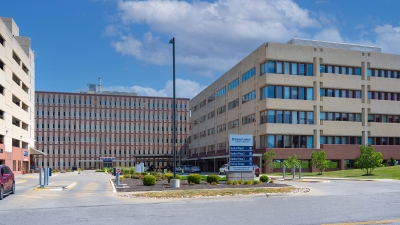Surgical Wounds
After surgery, the resulting wound needs proper care for healing, minimizing infection risk, and avoiding complications.
Causes of surgical wounds
Surgical wounds with delayed healing can evolve for many different reasons:
- The size of the wound
- Presence of bacteria
- Inadequate nutrition
- Location of the wound
- Blood flow to the wound
- Swelling
- Lifestyle behaviors
- Underlying diseases, such as cancer, autoimmune disease, diabetes, etc.
The goal with surgical wounds is to minimize these complications and eliminate variables that delay healing.
How do I care for surgical wounds?
Healing rates improve when we address three primary factors:
Improving blood flow
- Maintain good blood flow by elevating the healing area and engage in movement however you are comfortable.
- Tobacco use slows blood flow tremendously and smoking cessation (particularly in the presence of low blood flow) is a crucial step for wound healing.
Reducing the presence of bacteria
- Keeping the wound area clean and dry, using advanced wound dressings, and removing exposure in the shower limits risk of bacterial introduction and augments healing.
- Reducing swelling, pressure and friction around the wound promotes healing as well.
- It is important to change the dressings as prescribed.
Optimizing nutrition
Healthy nutrition will likely involve protein supplementation and tightly controlled blood sugars (for those with Diabetes) to improve wound healing. HgbA1C less than 7.0 supports healing rates.
What to expect in wound care
The wound care team is dedicated to help you heal your wound, which may involve:
- Laboratory studies
- Imaging (X-ray, ultrasound, CAT Scan, MRI, or nuclear medicine studies)
- Wound cultures
- Modifying lifestyle choices
It is common to perform debridement of the wound in the clinic to help clean the wound surface. We will use advanced dressings and may consider using a wound vacuum device to help promote healing. Other specialists may assist the wound care team in managing any underlying disease that contributes to delayed healing.
Wound reoccurrence prevention
Many habits that you have embraced to heal will be the ones that help you sustain healing:
- Adequate nutrition
- Managing swelling around the wound
- Reducing pressure or friction over the recently healed area
- Maintaining tobacco cessation
Proper surgical wound care is essential for a safe and smooth recovery. By following best practices, being aware of potential side effects, and seeking appropriate treatments, you can minimize complications and promote faster healing.
Locations

Saint Luke's Wound Care Specialists–Plaza

Saint Luke's Wound Care Specialists–Barry Road

Saint Luke's Wound Care Specialists–Lee's Summit
